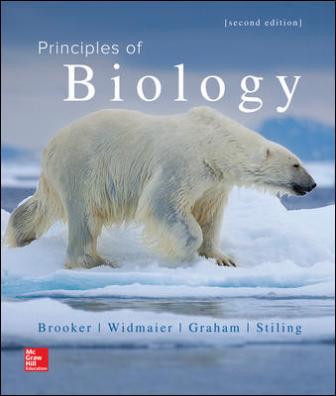Description
Solution Manual for Principles of Biology, 2nd Edition, Robert Brooker and Eric Widmaier and Linda Graham and Peter Stiling
Table of Contents
1 An Introduction to Biology
Unit 1 Chemistry
2 The Chemical Basis of Life I: Atoms, Molecules, and Water
3 The Chemical Basis of Life II: Organic Molecules
Unit 2 Cell
4 The Evolutionary Origin of Cells and their GeneralFeatures
5 Membranes: The Interface between Cells and TheirEnvironment
6 How Cells Utilize Energy
7 How Cells Capture Energy via Photosynthesis
8 How Cells Communicate with Each Other and with theEnvironment
Unit 3 Genetics
9 The Information of Life: Structures of DNA, RNA, andChromosomes, and DNA Replication
10 The Expression of Genetic Information via Genes I:Transcription and Translation
11 The Expression ofGenetic Information via Genes II: Non-coding RNAs
12 The Control of Genetic information via Gene Regulation
13 Altering the Genetic Material: Mutation, DNA Repair, andCancer
14 How Eukaryotic Cells Sort and Transmit their Chromosomes:Mitosis and Meiosis
15 Transmission of Genetic Information from Parents toOffspring I: Patterns that Follow Mendel’s Laws
16 Transmission ofGenetic Information from Parents to Offspring II: Epigenetics, Linkage, andExtranuclear Inheritance
17 The Simpler Genetic Systems of Viruses and Bacteria
18 Genetic Technologies: How Biologists Study Genes andGenomes
Unit 4 Evolution
19 Evolution of Life I: How Populations Change fromGeneration to Generation20 Origin of Species and Macroevolution
21 Evolution of Life II: The Emergence of New Species
22 The History of Life on Earth and Human Evolution
Unit 5 Diversity
23 Diversity of Microbial Life: Bacteria, Archaea, Protists,and Fungi
24 Microbiomes:Microbial Systems On and Around Us
25 Plant Evolution: How Plant Diversification Changed PlanetEarth
26 Invertebrates: the Vast Array of Animal Life without aBackbone
27 Vertebrates: Fishes, Reptiles and Mammals28 FloweringPlants: Plant Behavior
Unit 6 Plants
28 An Introduction to Flowering Plant Form and Function
29 How Flowering Plants Sense and Interact with theirEnvironments
30 How Flowering Plants Obtain and Transport Nutrients
31 How Flowering Plants Reproduce and Develop
Unit 7 Animals
32 General Features of Animal Bodies, and Homeostasis as aDefining Principle of Animal Biology
33 Neuroscience I: The Structure, Function, and Evolution ofNervous Systems
34 Neuroscience II: How Sensory Systems Allow Animals toInteract with the Environment
35 How Muscles and Skeletons are Adaptations for Movement,Support, and Protection
36 Circulatory and Respiratory Systems: Transporting Solutesand Exchanging Gases
37 Digestive Systems and Excretory Systems: Maintenance ofNutrient, Energy, Ion and Water Balance
38 How Endocrine Systems Influence the Activities of allOther Organ Systems
39 The Production of Offspring: Reproduction and Development
40 Immune Systems: How Animals Defend Against Pathogens andOther Dangers
41 IntegratedResponses of Animal Organ Systems to a Challenge to Homeostasis
Unit 8 Ecology
42 Behavioral Ecology: the Struggle to Find Food, Mates andto Pass on Genes
43 Population Growth and Species Interactions
44 Communities and Ecosystems: Ecological Organization atLarger Scales
45 Biomes: Worldwide Patterns across Global Scales
46 Biodiversity and Conservation
47 The Age of Humans:Impacts on Natural Systems



Reviews
There are no reviews yet.